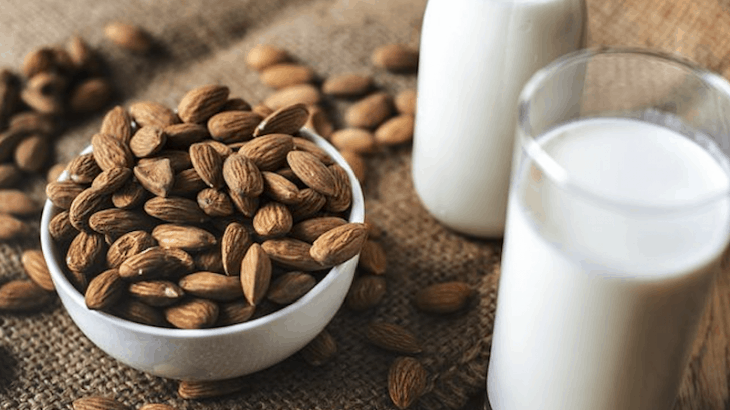
Which plant-based drink to choose?
The vegetable drink is very popular. Many companies offer it to us. Many basics are offered. Added to this are organic, non-GMO, sweetened, flavored, etc. options. How to find your way there? This article will allow you to make an informed, but above all healthy, choice.
Warnings
First, know that the vegetable drink, whatever your choice, does not at any time replace breast milk or formula in an infant's diet.
Also, as a consumer, you must first choose a product that meets your health requirements.
Why consume plant-based drinks?
If you haven't yet made the leap to the world of plant-based drinks, it may be because you are still wondering why you should change your habits. Among the most popular reasons are allergies or intolerances. Personal choice, such as vegetarianism or veganism, also motivates the transition. But for either of these reasons, this is probably not the case for you, since the change would have already been made.
What might influence you a little more are the health benefits of the product. I have no intention of speaking ill of animal milk, but scientific studies increasingly demonstrate the negative impact of cow's milk on health. Vegetable drinks contain no lactose, no casein and very little or no cholesterol, in addition to having a very interesting nutritional profile.
The plant base
Almond. Soy. Cashew. Coconut. Hemp. Peas. Rice. Hazelnut. The base possibilities for a plant-based drink are immense. Each of these bases offers its own taste, texture and of course its nutrients. Here are some of the most popular options and their pros and cons.
Soy
Soy beverage is probably the pioneer in the field. Far more attractive than in its beginnings, it certainly still remains among the most popular. Since soy is naturally rich in proteins, lipids, iron, zinc and calcium, its milk is particularly nutritious. However, it remains a priority to choose a product containing a sufficient quantity of soy beans. Otherwise, the drink will have a rather poor nutritional profile. How to know? Analyze labels and compare nutritional values.
It is essential to remember that any food product made with soy should be organic in order to avoid consuming GMO soy.
Almond
Although almonds are so nutritious, they lose some of their quality in the process of making almond drink. Like all other plant-based drinks. What clearly sets it apart from the others is its mild and light taste. This drink is ideal for quenching thirst or for cooking.
Oats
The oat drink has only recently appeared on the market. She was welcomed with wide open arms! It is low in calories, low in fat, but rich in vitamins. Vitamin E and those of the B complex in particular. It also has a very mild taste and is a little smoother than the almond drink. Its negative side, but only if you are intolerant or allergic, is the possible gluten contamination of the oats.
Peas
Another little news, the pea drink. Cow's milk lovers, this one is definitely for you! This plant-based drink is so smooth that it could almost come from the animal. Its taste is also very comparable. In addition, given its base, it is among the most protein-rich.
Rice
The vegetable rice drink is highly coveted by parents who want to get their children off cow's milk. It has a sweet taste, a bit like that of cow's milk. Unfortunately, the rice drink contains few nutrients and a lot of carbohydrates. A drink won't hurt. However, you should not rely on it to meet your daily nutritional needs.
Ingredients
While the choice of the base for your plant-based drink is very personal, the list of ingredients is not as much. There are many products, many companies and all for a very varied price range. Don't be excited by a low price or scared away by a price that's too expensive. It is often a reflection of what is in the bottle. But an informed look is required.
Frequently found in a more “natural” plant-based drink
Cane sugar: present in most plant-based drinks. Compare the nutritional tables of products to find one that will be less sweet. Generally, unsweetened or unflavored drinks contain less. But that’s a question of taste!
Natural flavors: not so bad. But the fewer the better.
Xanthan, gellan, guar or carob gum: they are used to provide a better texture to the vegetable drink. Most contain it and it is not a problem in itself. If you can find a product you like that doesn't contain any, you'll have a more natural drink. However, locust bean gum is preferable to the other three.
Sunflower lecithin: an excellent alternative to soy lecithin. It acts as an emulsifying agent in vegetable drinks.
Dipotassium phosphate: safe food additive used in vegetable beverage to balance acidity and as an emulsifying agent.
Ingredients used to enrich the vegetable drink
Vitamin A palmitate: used to enrich vitamin A.
Tricalcium phosphate or calcium carbonate: used to enrich calcium.
Zinc gluconate: used to enrich zinc.
Should we choose an enriched vegetable drink or not? On the one hand, opting for a food enriched with vitamins and minerals offers you an additional vitamin intake. On the other hand, the vast majority of plant-based drinks on the market are. So the choice is not really yours.
But, there is a big but! If you find a drink that is less fortified, but has a more interesting list of ingredients, some thought is in order. The quality of the product is very important and certainly goes through the ingredient list. In addition, your glass of plant-based drink or the portion you use for cooking will not and should not be the richest nutritional contribution in your diet. It is up to you to make your choice !
To avoid
The list of ingredients to avoid could be very long. Here are some common examples.
Non-organic soy: almost certainly a GMO product.
Carrageenan: frequently used to thicken and stabilize the food product. It is indigestible, possibly carcinogenic, it weakens the immune system…
Sugar: too broad a name. It is not clear what type of sugar it is. Natural or refined?
Maltodextrin: frequently used additive from non-organic corn processing and with a reputation for causing a lot of damage to health. In particular, inflammation, microbiota imbalance, glycemic fluctuations, allergies or intolerances.
Zinc oxide: when applied to the skin, if it is not in nanoparticles, it is fine. In a food product, the substance has a high chance of passing through your digestive mucosa and ending up in your bloodstream. Zinc oxide has toxic effects and is potentially carcinogenic.
A reading that might interest you
Learn how to make your own vegetable drink and discover tips and advice that will make your experience enjoyable.
